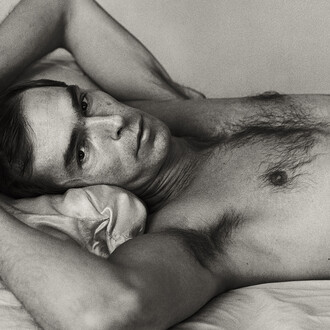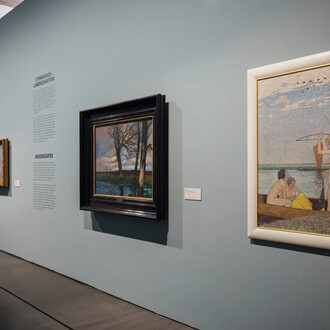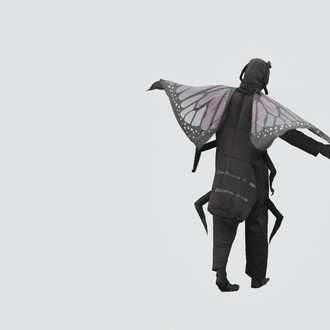Over the last ten years the Polish designer duo chmara.rosinke have created an extensive body of work in which they have surprisingly often touched on a recurring motif: the kitchen. Now, for the first time, the Kunstgewerbemuseum (Museum of Decorative Arts) is presenting an exhibition dedicated solely to these projects.
The projects on display make one thing particularly clear: chmara.rosinke play with the ideas we commonly associate with designer kitchens and a corresponding lifestyle, while also subverting established concepts. They don’t think of the kitchen in terms of space, but in terms of objects. They enquire about the essence of a kitchen, about what it really requires to function, and how the interaction between things and people can be sensibly organised. This results in “kitchens” that go beyond classic furniture construction and distinguish themselves particularly through their mobility and modularity. Substantively these design projects range from societal to artistic, aesthetically from DIY to professional craftsmanship.
For chmara.rosinke the kitchen is not a stage for self-presentation or even a status symbol, but rather a shared space where society is being formed. Their work mobile hospitality (2011) took them on travels from Vienna to various venues in Austria and around the world, including Paris and New York. In this project, with its aim of bringing strangers together around a table for the duration of a meal, they sought to temporarily create a new quality of time spent in public space.
Their project Co-Cooking Caritas also focuses on the social and cultural significance of cooking and eating together, for the latter creates community, identity, belonging, and cultural codes. On behalf of the Caritas Catholic relief agency, chmara.rosinke designed mobile kitchen units for a community kitchen where children, teenagers and senior citizens cooked together and shared knowledge, while becoming aware of the importance of a healthy eating culture.
Claude Levi-Strauss associated cooking with the beginning of civilisation and roots of artisanship. The first stove was an open fire. chmara.rosinke sought to reinterpret this archaic production of food with their work Time for Oneself. The result is a fusion of furniture, backpack, picnic basket, grill and fishing set, a kind of toolbox that can be used to obtain and prepare a meal outdoors in a very enjoyable and relaxing fashion. While producing the various objects the duo collaborated with numerous craftspeople, ranging from brushmakers to blacksmiths. Time for Oneself is a collection of objects for modern urban nomads who want to indulge in the rare luxury of leisure time.
An Alternative Consumer Culture? chmara.rosinke makes use of design as an opportunity to reflect on the relationship between people and their environment, about their basic needs and responsibilities, and about the relationship between objects and space. Social design plays a significant role, but so, too, does devising ecologically sustainable, handcrafted quality items. The two artists consider returning to the archetypical and sensual properties of design necessary for the creation of a new alternative form of consumer culture.
















